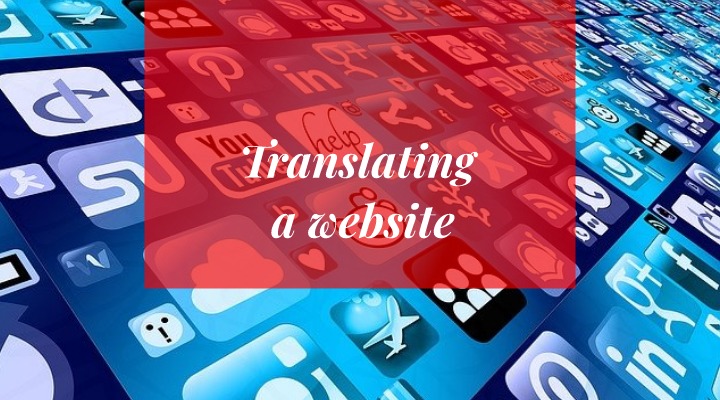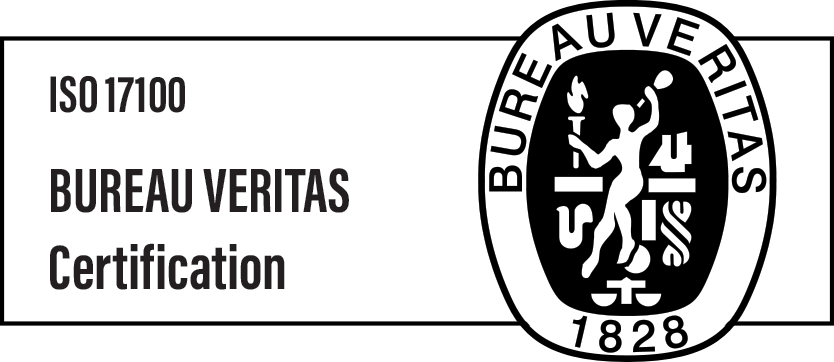If you have a website and you want to introduce your services or products to the foreign market, having a good translation is vital. Customers expect to be able to read the content in their native language, and it’s your obligation to ensure that. Without a doubt, you could opt for machine translation to save some time and money. However… is it worth it?
Translating a website is by far one of your most important translation endeavours ever. A good-looking and understandable website is a path to market success and satisfied customers. Today, we are going to show you all the important aspects of website translation. A proper approach to this service will enable you to have a functional and effective webpage that will help you win the foreign market.
Creativity in translating websites
When translating a website, all the basic elements like language consistency and correctness are of paramount importance. However, the translator’s creativity is also significant when it comes to translating the website. For example, you should pay special attention to how to translate product descriptions or marketing slogans. They often use wordplay or language structures that are appropriate only to selected target users. In such cases, a literal translation will be pointless as the outcome will not produce the expected results. The solution is transcreation, i.e. a creative translation that also focuses on cultural differences and context.
Translation of technical content (elements invisible to your target audience)
Translating a website involves translating all the information it contains, including all the invisible technical elements. Hence, it is more than just the translation of the words on the page.
Elements that are invisible on a website are just as important as the content that is visible to the audience. For this reason, their translation is also necessary. Translation of the technical content may be divided into the following groups:
- translation of HTML tag attributes, for instance, descriptions of graphic elements embedded on the website or links to other websites,
- translation of elements affecting the effectiveness of the website, for instance, the website title
- translation of Javascript and PHP files[1]
Search Engine Optimisation
SEO is a strategy that improves the appearance and the position of the website in organic search results. When creating website content, attention is paid to the appropriate selection of keywords to improve SEO. This strategy increases the visibility of your website and thus contributes to a high search engine ranking. Hence, SEO translations are also of great importance.
When translating websites, it is crucial to optimise the entire website content for SEO. This means that all the keywords should be properly selected and, in the case of translations, correctly translated. At this point, understanding the online behaviour of a target customer is critical.
We talked a lot about that in the article about SEO translation. We highly recommend reading it!
The following elements are key in SEO translation:
- Meta titles and meta descriptions: The page title is the first line of text that appears in the search results, and it appears in the title bar of your browser as well. Meta descriptions are small pieces of HTML code that describe or summarise the page they refer to. You can find the meta description only in the search results. For your website to be positively received by a foreign user, both of these elements ought to be correctly translated.
- The list of keywords and key phrases: In some cases, keywords can be translated literally. However, it’s also crucial to choose a translation that matches what local users are typing into the search engine. Even though the translation will be linguistically correct, if it isn’t a word most often typed in the search box by local users, you can lose potential customers.
Website localisation
Oftentimes, a standard website translation isn’t sufficient. Why? Because you should be aware of the cultural and social differences. Therefore, you need the localisation service when translating websites. And what does website localisation mean? This translation-related service is based on:
- Adapting texts and images to local audiences and their needs
- Ensuring the website layout supports the localised site language format
- Updating units and measurements (such as the date and time formats)
- Taking different cultural and social norms into consideration
When translating websites, it should be remembered that, apart from the translation of the text, the aspect of localisation is also extremely important, i.e. adapting the content to the reality of the country and the culture of the target users. This process is aimed at adjusting the company’s website to the needs of the foreign market.
One of the most common examples of localisation in website translations is adjusting the currency in which the prices of your services or goods are offered. For instance, if you’re interested in the Polish market, instead of showing the price in EUR, you should provide the price converted into PLN. Avoiding the localisation process may decrease customer interest, even though the website will be in their native language. Localisation is one of the elements of the language layer, i.e. the first stage of the entire website translation process.
A good translator can effectively localise content for international markets.
Machine website translation – is it worth it?
Using a machine translation tool (e.g., Google Translate) can be tempting. However, is it worth using it? In our opinion, it’s not. If you want to introduce your brand to the international market, using an automatic translator will not bring you the same result as a professional translation. As you can see in this article, professional translation:
- Optimises the content in terms of SEO
- Is based on localisation
- Focuses on elements that are invisible to the ordinary users of the website, i.e. HTML tag attributes and metadata
- Is based on transcreation as regards, for example, marketing slogans
- Affects the effectiveness of your website.
Automatic translation doesn’t even begin to capture any of these aspects. The translation ought to be done by an agency that has the necessary market knowledge and experience. Only a professional translation may result in increased traffic on your website and the success of your business in the new market.
And remember! If you want to introduce your website to Polish users, our experienced team of translators is eager to help you! They are native Polish speakers who help you translate the website so that you can enter the Polish market with ease!
[1] https://slavis.net/pliki-stron
Also read:


